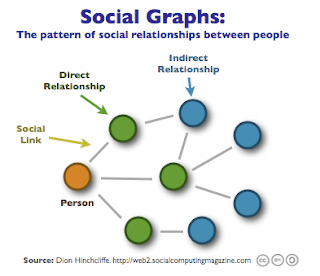“Personalized Search technologies, social media and user-generated content are putting consumers in the driver’s seat even faster and with great impact. Long gone will be the standard algorithms and one behemoth listing of results. Businesses will need to create even more personalized, on-demand experiences and ensure they provide relevant, highly targeted content. Knowing your customer (behaviors, needs, demographics, and lifestyle) will be even more important and listening to your consumer base vital. They are in charge!"
Sherri Maxson,Internet Marketing Consultant
I revisited the article tonight as I prepared my posted. Back in 2007 personalized search technologies consisted of Google’s innovation with its algorithm to show relevant results based on a user’s past search behavior. Search technologies continue to evolve, however, as search and social converge.
Search & Social Converge
On November 3rd, Bing announced the promise of more meaningful search results as it seeks out information from a user's social graph on Facebook. Now, using Bing search, your Facebook friends who Like content you are seeking appear first in the results. It's word of mouth on steroids powered by technology as friends show up in search results with their vote and recommendations for products and services they have “liked” and shared on the web.
Google Needs Innovation
Google’s search results listing is largely based on how important web content is deemed based on the amount of links to the site, the ‘authority’ of the site from which the link comes and the popularity or sheer amount of content/links. Google is also giving local businesses priority. There is no human interaction or relationship building in this model.
Google search results are deemed neither positive or negative. Thus a site with a negative reputation can easily be ranked #1 or appear on the first page of results, which is “the money page”. This was the premise of a recent New York Times article that appeared earlier this week. The story centered on an online businessman who treats customers poorly to provoke negative chatter about his company online to increase the content and links to his site. The more this chatter increases, the more content and links are generated about his company, the better his results in Google. This strategy has provided top search engine rankings for a number of key terms and he claims has increased his bank account significantly. The sad fact is how he is mistreating and harassing customers. If consumers dig deeper into their social networks or other sites to investigate, they’d see that most of the online conversations warn others not to do business with this company. However, for many they are not taking this next step.

All the more reason why social search has more relevancy. Human interaction and trust factor into search results for far more personalized and trusted results. As mentioned, Bing currently offers social search – using Facebooks’s social graph (network of friends and connections) to enable word of mouth search results and by far has the most robust offering. It’s integration with Facebook is huge.Blekko’s been around for a while and it too relies on community and humans to power its relevance (similar to a Wikipedia model). Google’s working on building their own social search/social graph with Google Hotpot. Neither Blekko nor HotPot have the momentum or the social graph of Facebook.
Building Social Search
Facebook “Likes” will now take precedent in search vs the sheer link building that Google evaluates. Trust and human interactions are the root of social search. Social graphs rule. Consumers will continue to seek out and place value on information from their communities and those they trust. There are many many ways to enhance search efforts, but two primary ways I’d like to touch on are Social Objects and Social Authority.
Create Social Objects
Create content and applications that your community wants and finds valuable. By doing so they consume, “like”, and share with others. In the past, content used to be created for the benefit of search engines (robots would read the content and index it accordingly as another dimension of the linking algorithm). Now, in social search, content consumed and shared by humans takes precendent. It has to have meaning and value.
Keywords still have relevancy. In the past, those performing SEO put a lot of focus on the keywords they were hoping to get searched on and embedded them in the pages of the site and as content in their link building strategy. This holds true today. Social objects and content still need definition for the search engines to rank them. They should be used for titles and within content for your users to share.
Create Social Authority
Page rank used to be the holy grail. Getting a link on an authority web site (for example a .edu site or one of the top 50 web sites, was considered a knock out to get your site ranked higher.) Now the goal is to build relationships with social authorities, those who others trust and who have a high volume of followers. If the social authority likes your content and passes along content authentically and sincerely, more people take notice.
Be Human,
Sherri
No comments:
Post a Comment